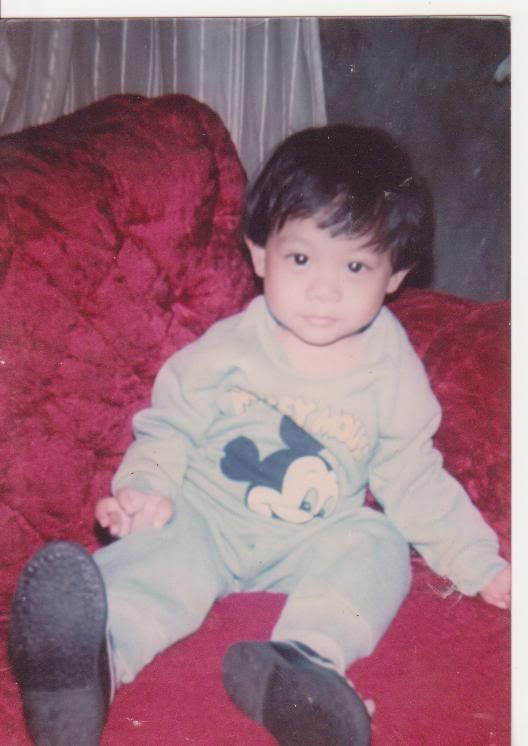Autism was my topic way back in high school for my research paper! I went to SPED schools to interact with them! It's one of the happiest moments in high school, i didn't only learn Autism from books but i had the chance to interact with them. We are three in my group, and we all went to the Sped school, but before we went there, my other two group mates were hesitant to go because they think it's hard to connect with these kids, but later they agreed to go! And now the Autism Society of the Philippines is celebrating it's 11th annual National Autism Consciousness Week, tagged as "AUTISM Challenge: Outwit. Outplay. Outlast."
Some few notes about AUTISM from the Autism Society of the Philippines:
What is Autism?
Autism is a developmental disability that severely hinders the way information is gathered and processed by the brain, causing problems in communication, learning and social behavior. It typically appears during the child's first three years, occurs in roughly 15 to 20 of every 10,000 births and is four times more common in males than females. People with autism live normal life spans and some of the behavior associated with it may change or disappear over time. Autism has been found thoughout the world in families of all racial, ethnic and social backgrounds.
What causes autism?
Although no one specific cause of autism is known, current researches link autism to biological or neurological differences in the brain. The severely incapacitating symptoms are caused by physical disorders of the brain. In some families there appears to be a pattern of autism or related disabilities which suggest there may be genetic basis to the disorder, although at this time no one gene has been directly linked to autism. No known factors in the psychological environment of a child have been shown to cause autism.
What are the symptoms?
The following areas are among those which may be affected by autism:
Communication. Language develops slowly or not at all; use of words without attaching the usual meaning to them; gestures used intead of words; short attention span.
Social Interaction. The person with autism may spend time alone rather than with others; show little interest in making friends; less responsive to social cues such as eye contact or smiles.
Sensory Impairment. Unusual reactions to physical sensations such as being overly sensitive to touch or under responsive to pain; sight, hearing, touch, pain, smell, taste may be affected to a lesser or greater degree.
Play. Lack of spontaneous or imaginative play; does not imitate others' actions; does not initiate pretend games.
Behaviors. May be overactive or very passive; throw frequent tantrums for no apparent reason; may perservere on one single item, idea or person; apparent lack of common sense; may show aggressive or violent behavior or injure self.
visit their website at http://www.autismphils.org/
Some few notes about AUTISM from the Autism Society of the Philippines:
What is Autism?
Autism is a developmental disability that severely hinders the way information is gathered and processed by the brain, causing problems in communication, learning and social behavior. It typically appears during the child's first three years, occurs in roughly 15 to 20 of every 10,000 births and is four times more common in males than females. People with autism live normal life spans and some of the behavior associated with it may change or disappear over time. Autism has been found thoughout the world in families of all racial, ethnic and social backgrounds.
What causes autism?
Although no one specific cause of autism is known, current researches link autism to biological or neurological differences in the brain. The severely incapacitating symptoms are caused by physical disorders of the brain. In some families there appears to be a pattern of autism or related disabilities which suggest there may be genetic basis to the disorder, although at this time no one gene has been directly linked to autism. No known factors in the psychological environment of a child have been shown to cause autism.
What are the symptoms?
The following areas are among those which may be affected by autism:
Communication. Language develops slowly or not at all; use of words without attaching the usual meaning to them; gestures used intead of words; short attention span.
Social Interaction. The person with autism may spend time alone rather than with others; show little interest in making friends; less responsive to social cues such as eye contact or smiles.
Sensory Impairment. Unusual reactions to physical sensations such as being overly sensitive to touch or under responsive to pain; sight, hearing, touch, pain, smell, taste may be affected to a lesser or greater degree.
Play. Lack of spontaneous or imaginative play; does not imitate others' actions; does not initiate pretend games.
Behaviors. May be overactive or very passive; throw frequent tantrums for no apparent reason; may perservere on one single item, idea or person; apparent lack of common sense; may show aggressive or violent behavior or injure self.
visit their website at http://www.autismphils.org/





No comments:
Post a Comment